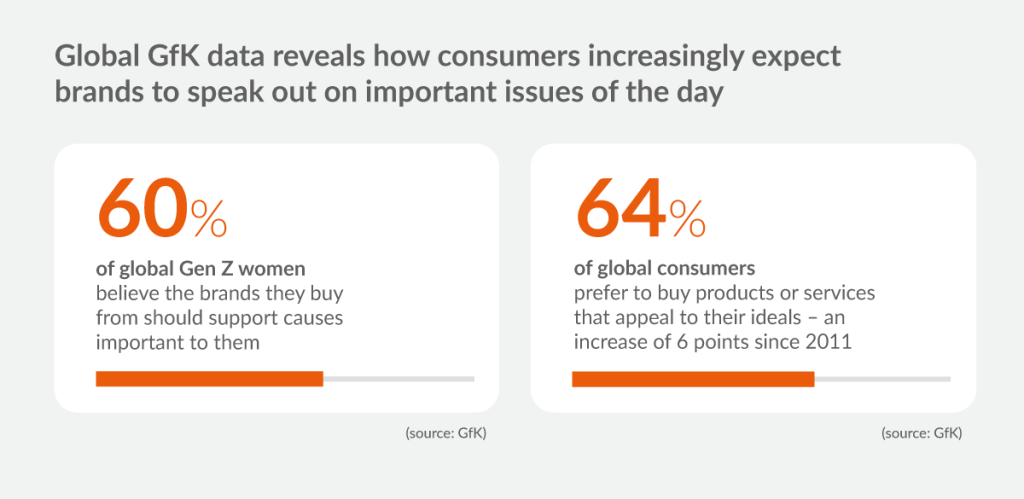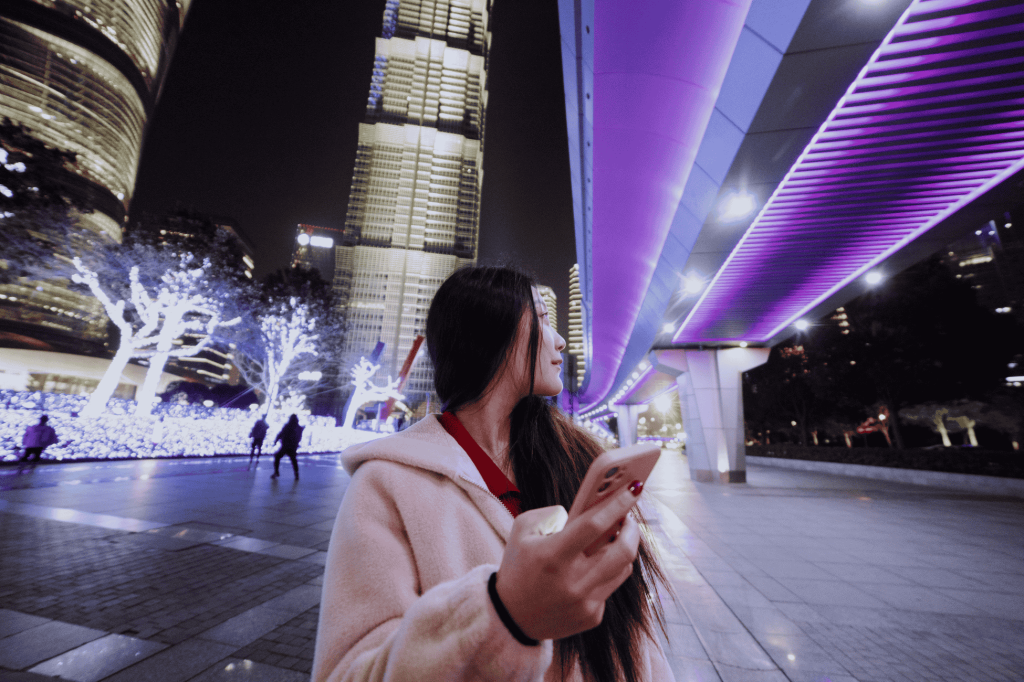Are you a truly authentic brand? Authentic brand-building means you need to look at your messaging, your values, your supply chain, and the way you treat your employees and ask: Are our words and actions in alignment?
This is the question younger consumers will be asking themselves before they purchase from your brand, and the answer will not only influence the ways consumers feel about your brand but can also have a powerful impact on the bottom line.
According to a 2021 survey conducted by The Org in the US, 84% of US Millennials say that they would be more loyal to a brand if they knew it was transparent, and 37% believe that a company’s values and culture are the most important facets of transparency. Additionally, 38% of respondents said they believed their place of work ‘had shared a public commitment towards transparency’.
“Consumers don’t expect brands to be perfect,” says Mitchel White, the managing director of Reward, a Manchester-based agency that specializes in scalable marketing strategies for conscious D2C brands. “They understand that change to be better takes time, but they also expect brands to be transparent about where they’re at currently. By demonstrating that you understand the need for change while also communicating how you’re going to make that change, you can remain authentic and build meaningful relationships with consumers.”
In addition, consumers increasingly look for authentic brands to align with their values. Our Consumer Life research shows that 60% of global Gen Z women believe the brands they buy from should support causes important to them. Similarly, 64% of global consumers prefer to buy products or services that appeal to their ideals – an increase of 6 points since 2011.
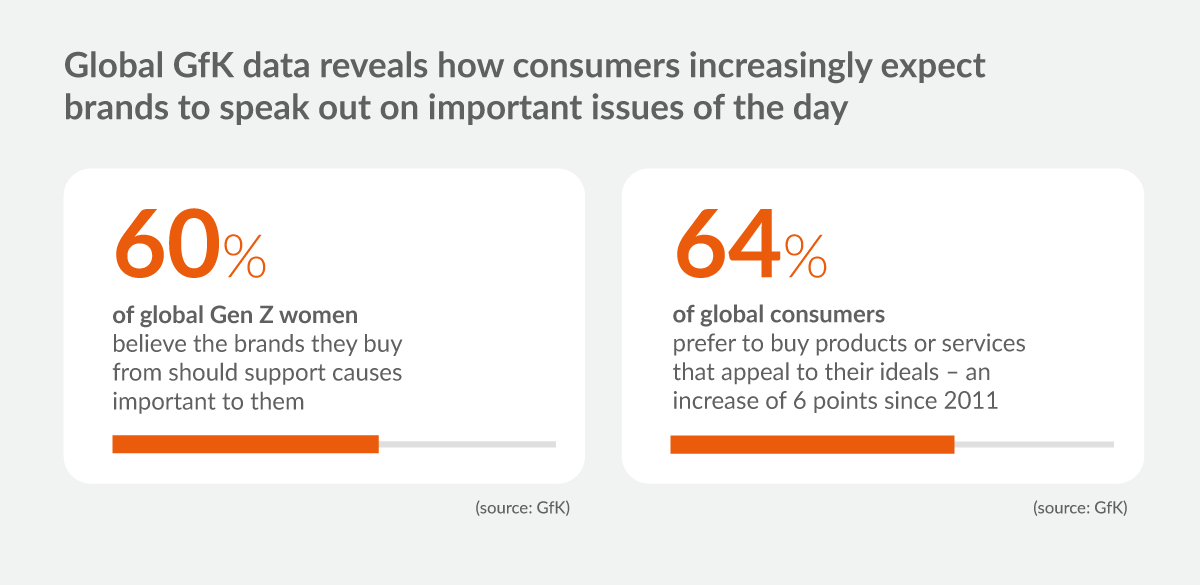
Depending on the product category, consumers still expect things like proficiency, quality, and value for money – but there is now an additional aspect of brand purpose that they are looking for. What’s more, established brands have some equity, which raises consumers’ expectations. For instance, the more familiar you are with a brand, the more you expect it to behave in a certain way and trust that it will.
In a world where many consumers want a 360-degree view of their most trusted businesses, authentic-brand building has never been more important – and more challenging. This is going to have a long-term impact on marketing and creativity and brands will need to be sure they can follow through on social issues and activist messages – instead of simply saying good things and then continuing with business as usual.
As such, authentic brands that can show that their corporate sustainability efforts are yielding real-world change have the edge in this consumer landscape. Savvy business owners must lead with purpose by showcasing their core values, sustainability credentials, and diversity and inclusion initiatives to keep building brand loyalty, resonate with consumers, and protect their bottom line.
Consumers want to see authentic brands lead by example
Some consumers are prioritizing social and environmental issues, and they increasingly expect brands to do the same – for genuine reasons that extend beyond the bottom line. Consumers have never really trusted or supported brands based solely on their profit. “They want to support brands that support others,” says White. “They’re moving toward brands that embed themselves within the communities they serve.”

With climate change rising up the consumer agenda (59% of consumers agree that brands have a duty toward the environment, marking a rise of 9% since 2015), brands have the opportunity to flex their eco-credentials – and shoppers are backing those brands. In Germany, ‘sustainable brands’ (those with a commitment to sustainability that goes beyond the actual product, such as funding their own Initiatives) saw revenue increase by 19% last year, compared to the average of just 10% across all FMCG. Importantly, the only brands to top this were ‘purpose brands’ – those with a sustainable focus combined with shoppers’ lifestyle demands – which achieved 23% revenue growth. The message, then, is that consumers are willing to pay a premium for sustainability, but still expect green products to be effective, high quality, and fairly priced.
Additionally, with socio-political fault lines becoming ever more apparent, brands that speak out on critical issues of the day will win consumer favor. According to data from Sprout Social, 70% of US consumers feel that it is important for brands to take a stand on political and social issues. However, brands must note that authenticity can sometimes come at a price: 55% of US consumers say they would boycott or discontinue shopping with brands that support public issues that do not align with their own views. As such, brands need to ensure that their beliefs also align with those of their customer base.
Marketers across the globe are recognizing the importance of authentic brand-building, especially in a post-pandemic world. Following a volatile year for consumer behavior and trends, our research shows 35% of global CMOs are committed to aligning with new and changing consumer sentiments, and 40% of marketers in APAC say brand positioning and marketing is a top priority for them. By defining a clear and authentic corporate sustainability strategy, businesses can inspire consumer trust and build brand equity, which means greater stability in the long run of customer relationships.
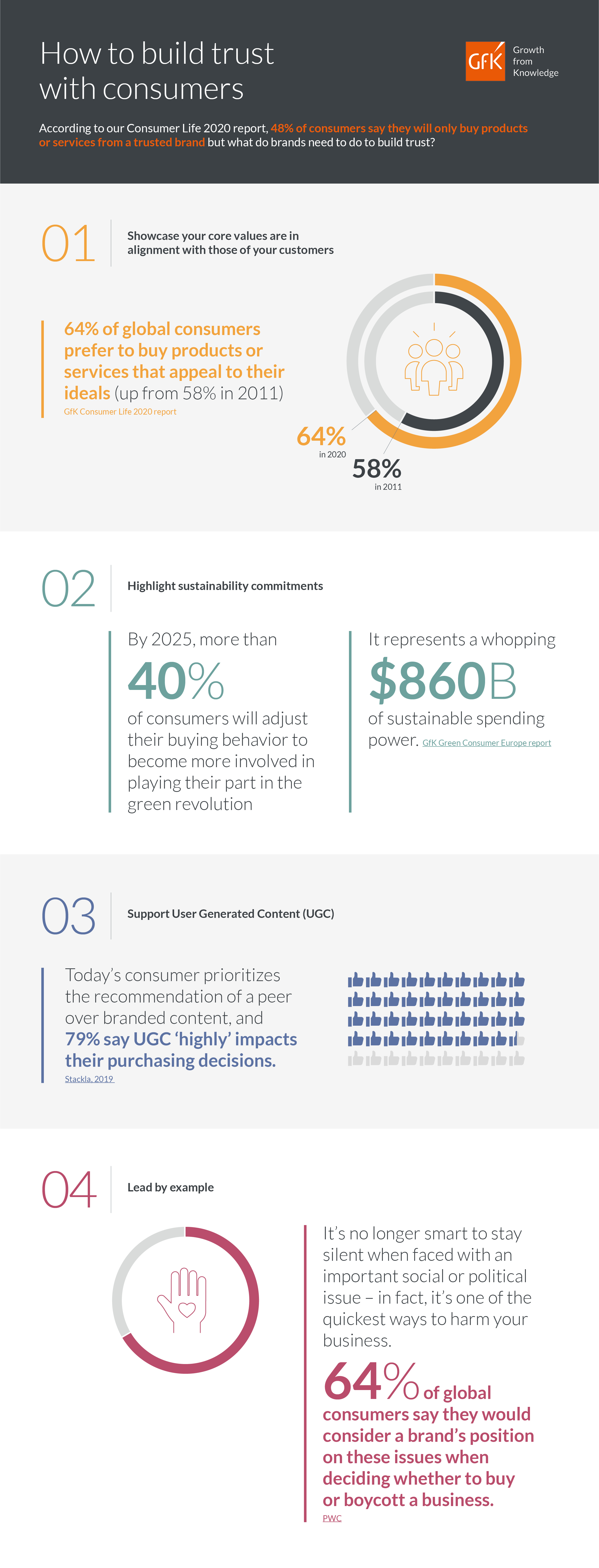
The importance of transparent communications
To be truly authentic, brands must also champion their values internally. “It’s important to involve employees at all levels in the development and growth of brand values,” advises Kirsten Ludwig, the president and co-founder of In Good Co, a purpose-driven creative agency based in Los Angeles. “These values need to be modeled daily in immediate and long-term actions by all, including C-suite executives. The small details speak the loudest, even things that are as ‘trivial’ as consciously quashing ‘mansplaining’ in meetings.”
Clear and consistent brand communication – both internally and externally – is key, even during times of crisis. Data from our research shows that the indexed average share of global brands that continued to advertise during the 2008 recession was 119 in the year after, compared with a score of 71 for those that failed to do so.
History shows that ‘going dark’ during periods of economic uncertainty is a poor strategy. An IPA (The Institute of Practitioners in Advertising) Advertising in a downturn study reported that: “A brand will continue to benefit from the marketing investment made over the previous few years resulting in a dangerously misleading increase in short-term profitability.”
“The longer-term business harm will be more considerable, but will not be noticed at first. A brand judged to be on the way down, because it has fallen silent, will very rapidly see this manifested in word-of-mouth, which will accelerate the perception of failure.”
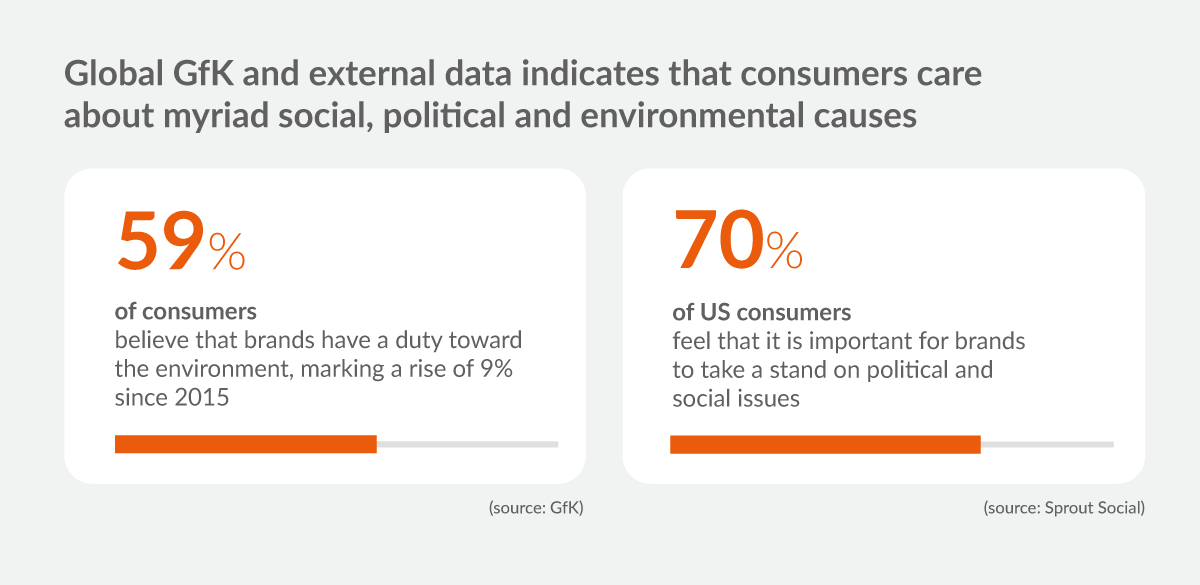
Consumers want to interact with authentic brands, so consider how you can communicate your company’s passions. For instance, harnessing the power of user-generated content (UGC) is a great way to allow customers to show how and why they share your environmental and social concerns.
This adds value to your brand and boosts social proof; in fact, 60% of global consumers say that UGC is the most authentic form of content.
Many brands seek to balance profit with values through taking a stand on Black Friday and Cyber Monday, the two busiest shopping days of the year. The shopping period brings in billions, and while some retailers run week-long promotions, releasing deals every hour to keep the fervor going, others have decided to take a purpose-driven approach. Some businesses have closed their doors or even raised prices in an effort to discourage over-consumerism, showcase true value alignment, or simply to appear more caring to customers.
Outdoor brand REI shuts its doors on Black Friday and encourages customers to be more mindful and share photos of themselves spending time in nature using the hashtag #OptOutside.
In 2020, footwear company Allbirds took the bold decision to increase its prices for Black Friday, donating the extra proceeds (which it matched) to Fridays For Future – an international grassroots movement for climate change action. This initiative sets an example of how brands can continue to make a profit while also taking environmental action.
Though many brands claim to be purpose-driven, consumers aren’t always convinced. In fact, while 94% of consumers believe having a purpose is important, only 37% believe companies today have one that is definable and clear. Furthermore, pervasive greenwashing has created an atmosphere of distrust between consumers and brands. Brands that renounce seasonal sales events but don’t have a circular business model risk losing affinity from a growing cohort of Eco Actives – shoppers drawn to companies with genuine environmental concern – a demographic which has shown double-digit growth since 2019.
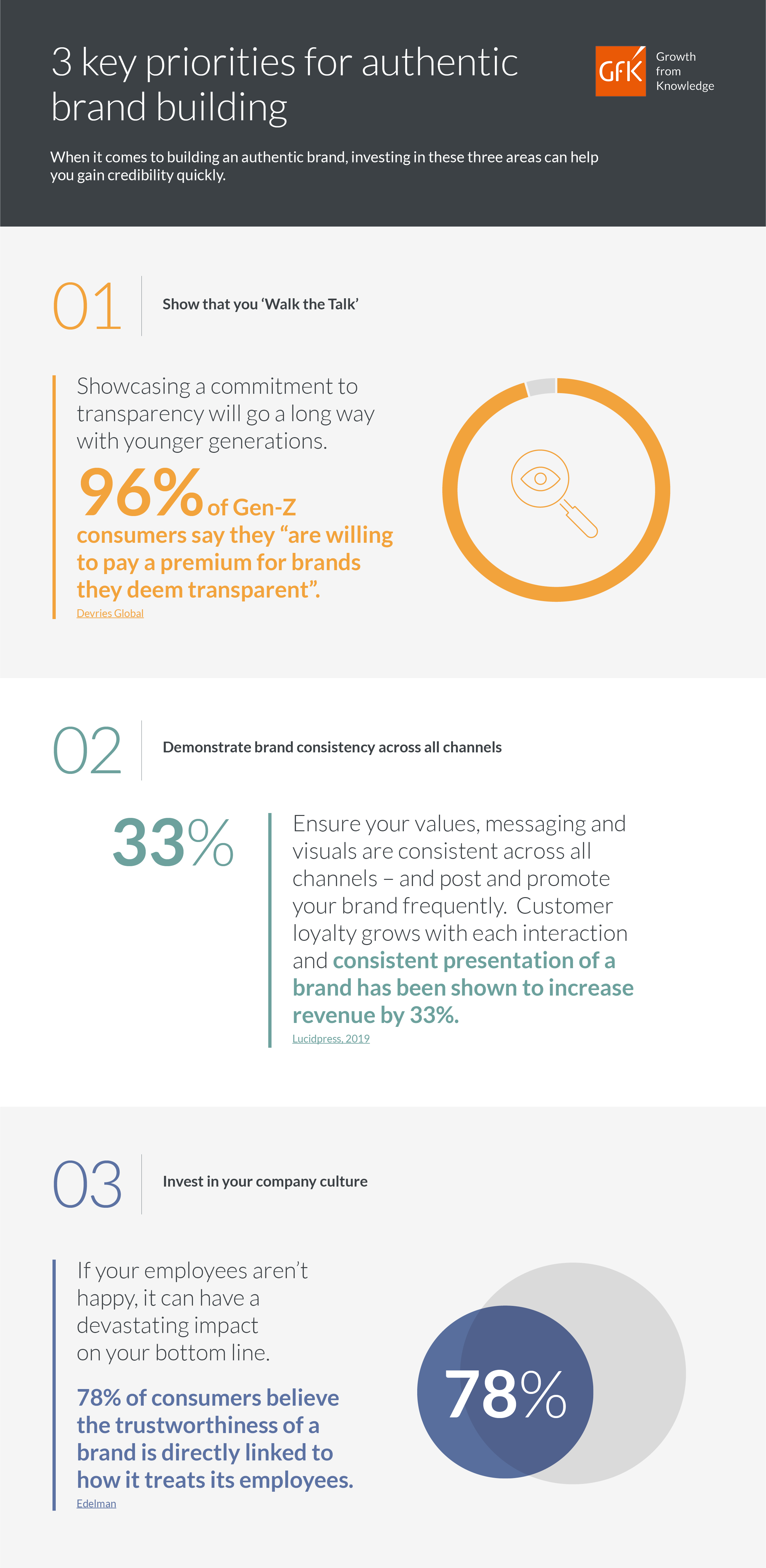
When communicating your values to consumers, consider inviting them to participate in your cause too. For instance, US brand Boxed Water, which sells water in paper cartons instead of plastic bottles, has built environmental sustainability into its brand DNA. As part of its eco-efforts, it encourages customers to help restore US National Forests, planting two trees for every social media post containing the hashtag #betterplanet, and has grown 1.2 million trees to date.
Authentic brands avoid simply paying lip service in sharing their sustainability concerns – and providing clarity through details is essential. “Consumers can see through greenwashing, so using more specific language can help,” says White. “Breaking messaging down into more granular areas of sustainability is key for authenticity – so talking about plastic waste instead of just about ‘being green,’ for example. Highlight specific actions that you’re taking and use insights and data to lend credibility to your green claims.”
Authenticity can be difficult to get right. For instance, there were some generic platitudes from brands in the early stages of the pandemic. However, brands now realize that they need to be more meaningful. They have adapted their actions to genuinely help people, instead of merely suggesting that they care.

Authentic brands show empathy
The automobile industry has been quick to support people during the pandemic. One such brand that has genuinely walked the walk during COVID-19 is General Motors. During the early stages of the pandemic, the brand pivoted to manufacturing face masks, which were in short supply across the country. It delivered 1 million face masks within four weeks of initial production.
Subaru of America has supported millions of Americans who found themselves out of work during the pandemic. In April 2020 it donated 50 million meals to the non-profit organization Feeding America to help those struggling with hunger during these times of uncertainty and pledged an additional 100 million meals in January 2021. Hyundai Motors has also used its resources to support vital services by donating fleets of vehicles to healthcare professionals and volunteers to enable better mobility. The automobile brand also donated money, medical equipment, and PPE to communities in need and offered support to customers who were impacted financially by the pandemic.
Airbnb is another brand that has been quick to support those who need help most. In August 2021, Airbnb CEO Brian Shesky announced the company would temporarily house 20,000 Afghan refugees through its non-profit Airbnb.org. Through Open Home, an initiative it founded in 2018, Airbnb has created a history of providing free accommodation to those affected by natural disasters and political conflict.
Identify your brand’s cause(s)
“What’s interesting today is that consumers aren’t satisfied with a brand championing a singular cause like traditional CSR programs often do,” says Ludwig. “Instead, Gen Z especially are looking for brands to hit on several fronts, such as environmental impact, social justice, inclusivity, and other more brand-specific pillars.” As such, the first step toward authentic brand-building is identifying the various causes that resonate with your business’s core products and services, and then using them to draw up a value-led mission statement.
However, as Ludwig cautions, don’t just jump on the bandwagon. “The reason so many exciting start-ups are thriving in this area is because their values have been driving all of their decisions from the beginning,” she explains. “Legacy brands need to do the work on uncovering or recovering their brand purpose, and taking both short- and long-term steps to have every internal and external initiative align with this vision.”
Ultimately, the reputation and values associated with a brand are decisive factors, shaping both purchase behavior and customer loyalty. By delivering authenticity in words and deeds, brands can deepen customer loyalty and strengthen brand health for the long run.
Want more insights into the role of branding in 2021 and beyond?
[Download our full infographic for key data on authentic brand-building below.]

FAQs
What is corporate sustainability?
Corporate sustainability is an alternative approach to the traditional growth and profit maximization model. While it recognizes that profitability is important, it also emphasizes societal, cultural, environmental, and ethical goals, especially those relating to sustainable Development.
Why is authentic brand-building so important?
Consumers today are looking for authenticity and transparency from brands, and increasingly expect businesses to align with their values. It is thus important for brands to identify the causes they stand for in order to resonate with their target audience.
What does effective brand communication look like?
An authentic brand is one that is consistent in its messaging and branding efforts. From the outset, be sure to demonstrate what your brand stands for, and maintain clear brand communications even during times of uncertainty. Help consumers connect the dots…between your brand’s products and your purpose and do so in a non-self-serving manner. Make customers the heroes.
